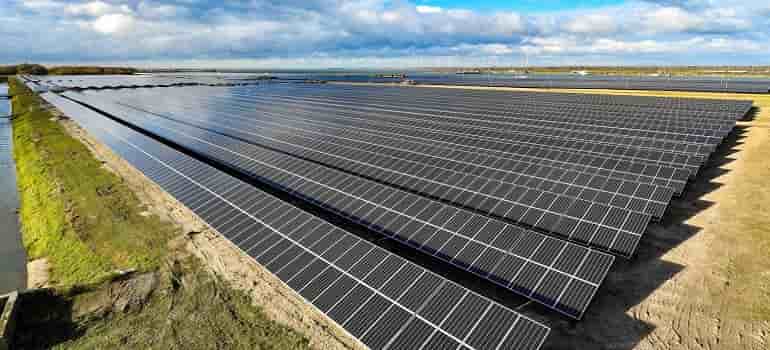MoU Signed to Promote Sustainable Solar and Wind Projects in the State
In a significant move towards advancing renewable energy development in Uttar Pradesh, the Uttar Pradesh New & Renewable Energy Development Agency (UPNEDA) and The Nature Conservancy (TNC) India have entered into a Memorandum of Understanding (MoU). The signing ceremony took place in Lucknow and was attended by Mr. Anupam Shukla, Director of UPNEDA and Special Secretary of the Energy Department, Government of Uttar Pradesh, along with Dr. Annapurna Vancheswaran, Managing Director of TNC India.
Under this collaboration, TNC India will employ a specialized tool called SiteRight for Uttar Pradesh. This tool will play a crucial role in selecting suitable locations for solar and wind projects, aligning with India’s renewable energy objectives while also ensuring minimal environmental impact.
Mr. Shukla emphasized the importance of this partnership, stating that it is a pivotal step towards realizing a sustainable and clean energy future for India and Uttar Pradesh. The state has set ambitious goals, aiming to achieve 14,000 MW of utility-scale solar projects by 2027. The focus is on identifying suitable land parcels that consider social and environmental factors, crucial for meeting these renewable energy targets in a time-bound manner. The primary goal of this collaboration is to foster socially and environmentally responsible development of renewable energy projects across Uttar Pradesh, which includes assessing the potential for floating solar and establishing science-based sustainable business models for decentralized solar projects in the state.
Dr. Vancheswaran echoed the significance of this partnership, noting that it will aid in prioritizing land parcels with lower environmental impact for renewable energy development projects, contributing to India’s national renewable energy targets. She emphasized that this collaboration’s objective is to ensure that renewable energy projects are implemented in a way that minimizes their environmental and social impacts. The SiteRight tool is instrumental in this regard, empowering renewable energy developers to make informed decisions about project locations, ultimately mitigating negative environmental and social repercussions.
The importance of such collaborations is underscored by India’s rapidly growing renewable energy sector, where concerns about land-use conflicts, community displacement, and threats to biodiversity have emerged. With India’s substantial potential for renewable energy, the focus on a clean energy transition has gained momentum. Accelerating the deployment of renewable energy sources and embracing innovative solutions are imperative to scale up the renewable energy sector in the country.


